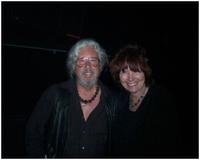“Listen up, mates,” the divemaster said in his yummy Australian accent. “Rumor has it some of you were over-served last night, so we’ll do an easy second dive. We’re going to Stingray City.”
Kathryn turned away from Steve and headed for the weight bin. She’d need extra lead for the shallow dive on the sandbar where the Southern Stingrays came to be fed squid. Then she listened as Derek explained the ins and outs of diving Stingray City. How to accept squid from the divemasters. How to feed it to the stingrays, which didn’t bite. How to avoid the squid-stealing yellow snappers, which did.
Once in the water, Kathryn settled on the bottom, accepted a handful of squid from Irina, and hid it in a clenched fist. Soon a four foot stingray approached her, detecting the squid by smell. She moved her fist, making the creature dance through the water, before opening her hand so it could eat. Its soft underbelly, where the mouth was, felt velvety smooth. She watched it flap its wings and swim away, then grabbed another clump of squid to repeat the process. Around her, other divers were busy at the same game.
After forty-five minutes of play, they’d run out of squid, the stingrays had taken off for the deeper water, and the divers were back on the boat headed for the hotel dock. Kathryn saw to her gear, then found a seat in the stern of the boat, in the sun. She leaned back and shut her eyes, but opened them again at the sound of Steve’s voice. “That was cool.”
“Very cool.” His enthusiasm was endearing. Kathryn smiled at him and found herself blurting out, “They remind me of you.”
He raised an eyebrow. “Come again?”
“They’re big and beautiful and gentle.”
His smile turned soft. He picked up her hand, raised it to his lips, and kissed her palm. “And you have them eating out of your hand.”
Oh, damn. Why had she started this? Kathryn shifted gears. “And they have very impressive tails.”
He let go of her hand. “What are your plans for the rest of the day?”
“Go on the afternoon dive, have dinner, and... make an early night of it.”
She just stopped herself from saying, ‘go to bed early.’ That would have sounded like an invitation.
Who was she kidding? That would have
been an invitation.
“Have dinner with me,” he said.
She thought of his breakfast invitation. “Room service?”
A flush rose on his cheeks. “No, not room service. I want to take you someplace nice. Or are you ashamed to be seen with me?”
“Of course not. But I like you better with less clothing than would be acceptable in a restaurant.”
His body stiffened. “Whatever.” He jerked around and walked away from her.






